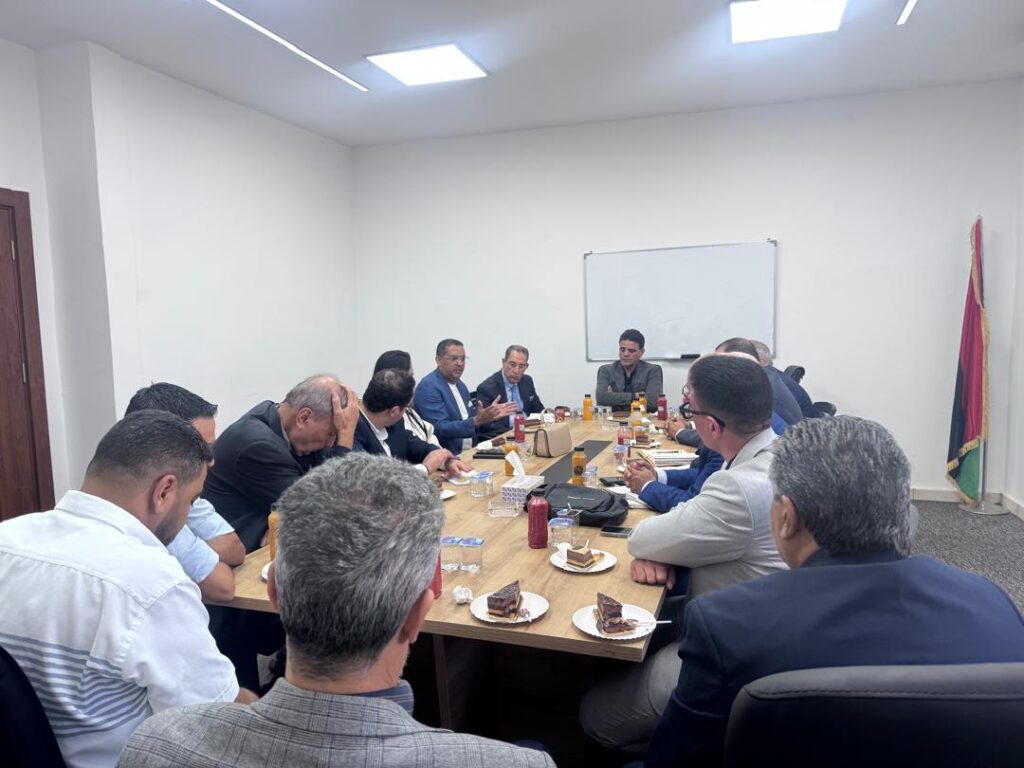Benghazi – The Director of the Benghazi Center for Drug and Food Control, Mahmoud Al-Zaydi, announced that a delegation from the Republic of Tunisia conducted a working visit to the center’s headquarters in the city of Benghazi, as part of enhancing joint cooperation between the two countries in the pharmaceutical and medical fields.
Al-Zaydi clarified in a statement to the Libyan News Agency on Tuesday that the Tunisian delegation was headed by the President of the Tunisian National Chamber of Private Clinics, Boubaker Zakhama, and included a number of representatives from the Tunisian health sector. He noted that the visit was attended by the director of the Libyan government’s Chamber of Commerce, Industry, and Agriculture, and the Director of the Exhibitions Department.
Al-Zaydi indicated that the meeting addressed ways of cooperation in the areas of importing medicines and medical equipment, exchanging technical and regulatory expertise, in addition to discussing possible mechanisms to facilitate the movement of supplies between the two sides to ensure the quality and safety of medical products traded in the Libyan and Tunisian markets.
The Tunisian side, according to Al-Zaydi, emphasized the importance of strengthening bilateral cooperation between the two brotherly countries, especially in the health and pharmaceutical sector, due to its positive repercussions on medical services in both countries.
The Tunisian delegation also extended a formal invitation to the head of the Center for Drug and Food Control and its members to visit Tunisia to learn about the procedures followed in supply, manufacturing, and quality control processes.
Al-Zaydi concluded his statement by affirming that this visit represents an important step towards building an effective partnership between the regulatory institutions in Libya and Tunisia, which will contribute to developing the pharmaceutical sector and improving health services for citizens.
It is noteworthy that the Center for Drug and Food Control is a government institution specialized in the control of drugs and food in the country, and it aims to ensure the quality and safety of pharmaceutical and food products traded in the Libyan market.
